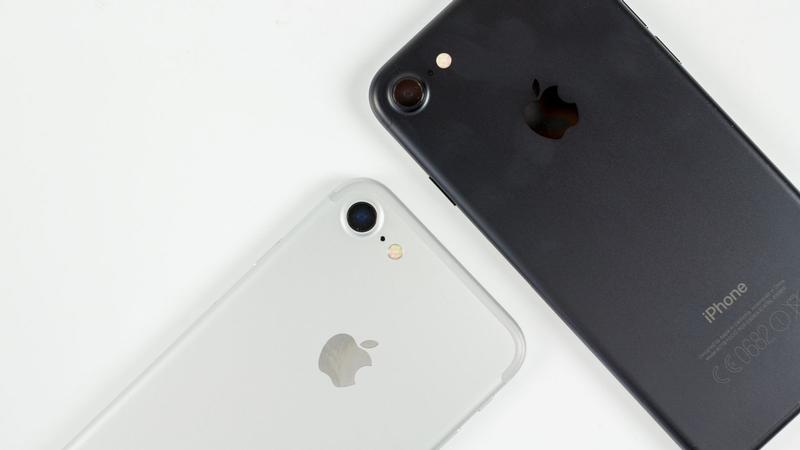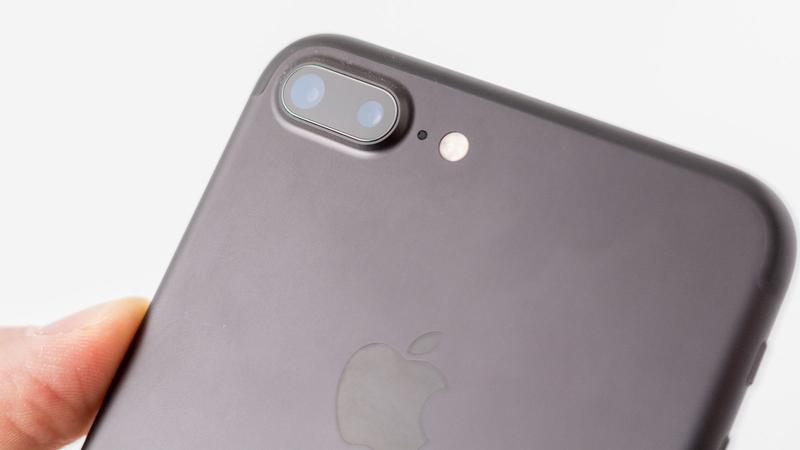One thing to note before we started is that although Google says the Pixel phones are ‘made by Google’; they are in fact manufactured by HTC. It seems the company wants to move on from the partnered Nexus era, but we’ve had confirmation from HTC of its involvement.
Google Pixel vs iPhone 7 review: Price
One of the most interesting things about the Pixel is that Google has decided to ask for flagship price. A strange decision when the affordable Nexus range was so successful. Even if this it technically a new brand, Google has set a precedent and now seems to be going against that. Not only has Google bumped the prices up, it’s gone as far as to match the iPhone 7. A brave move if you ask us, so both phones are £599 for the base 32GB model. You can add £100 to get 128GB of storage but it’s only Apple that offers an even bigger 256GB. The Pixel XL is almost matched with its iPhone counterpart at £719 and the same storage options are true as per above. For many, the price situation alone will be enough to decide but let’s look at what Google has on offer with the Pixel.
Google Pixel vs iPhone 7 review: Design and build
At the front, with the screen turned off, it’s hard to tell the Pixel and iPhone 7 apart (and the larger models) with the only giveaway being the Apple’s recognisable home button – which this time around isn’t a push type. It’s hard to make a phone look that different at the front and the back is where the difference is far more apparent. That said, the Pixel does have a very similar shape with almost like-for-like rounded corners. Google has opted for a similar aluminium feel to the casing of the Pixel but a large section of polished glass, which houses the fingerprint scanner, at the top sets it aside. We’re not convinced by the look of this, but it looks better on the black option. Apple offers a wider range of colours with the Pixel phone only available in black or silver in the UK. The iPhone 7 comes in two new attractive black models, but it’s worth noting that the glossy Jet Black model gets scratched easily and you can only buy it in the larger capacities. Fans will be pleased that the iPhone 7 models are now waterproof with an IP67 rating meaning you can dunk them in up to 1m of water for up to 30 minutes. Meanwhile, the Pixel phones are just IP53 which is only splash resistant.
Google Pixel vs iPhone 7 review: Hardware and specs
Android comes out on top when it comes to screen tech as the Pixel has a 5in AMOLED screen with a Full HD resolution and if you go for the XL, which is 5.5in like the iPhone 7 Plus, you get a Quad HD resolution. The iPhone 7 is the smallest at 4.7in which will suit some users but has a lower resolution at 750×1334. The iPhone 7 Plus is Full HD like the cheaper Pixel. It’s worth bearing in mind that Apple offers 3D Touch so pushing on the screen harder gives you extra functionality. We’ve only has hands-on time with the Pixel phones at Google’s launch event so haven’t been able to run any benchmarks. However, you shouldn’t need to worry about the performance of these flagship phones. The Qualcomm Snapdragon 821 in the Pixels is top-of-the-line, as is Apple’s new A10 Fusion chip. As with the Nexus phones, Google has mimicked Apple in not offering expandable storage. So either way, you need to be careful about which storage capacity you pick. As mentioned earlier, both come in 32- and 128GB options, but Apple also offers 256GB. Connectivity specs are pretty similar with both phones featuring Bluetooth 4.2, 11ac dual-band Wi-Fi, GPS and Cat 9 LTE. Although, each has NFC, Apple’s is restricted to Apple Pay. A key point for many will be Apple’s choice to remove the headphone jack on the iPhone 7. You’ll need to use wireless headphones, Lighting-compatible ones or the included adapter. There are different cameras on the iPhone 7 models, but the same shooter on the Pixel and Pixel XL. While the phone both have 12Mp sensors, despite the Pixel having a higher f/2.0 aperture (compared to f/1.8), DxO rates the Pixel three points higher than the iPhone 7. At 89, it’s the highest score for any mobile phone. Ratings aside, the Pixel and Pixel XL do not offer fully-fledged optical image stabilisation (OIS), but both iPhone 7s do now. The iPhone 7 Plus may be tempting for some as it offers dual-cameras; one is a telephoto lens offering 2x optical zoom thanks to its 56mm lens. When it comes to front facing cameras, there’s not a huge difference. Google’s fitted at 8Mp with an f/2.4 aperture, while Apple has a 7Mp sensor with f/2.2. Battery life will be a big deal for any phone user, and while none of these phones has wireless charging, Google offers fast charging via the USB-C port (7 hours life from a 15 minute charge). It also has larger batteries inside the Pixel – 2770mAh vs 1960mAh and 3450 vs 2900mAh – plus features like Doze mode. With reports of poor iPhone 7 battery life, Google is on top here.
Google Pixel vs iPhone 7 review: Software
As with any Android phone, software is a pretty big difference when comparing to the iPhone. Apple makes its hardware and software so can make sure the two are perfectly suited, and while HTC is making the Pixel phones this is the closest thing to an Android equivalent. Google has designed both the software and hardware with HTC’s help. Which one is suited to you will depend on a few things, including what phones you’ve had in the past. If you’re accustomed to Android or iOS then it makes a lot of sense to stick with it, although switching is easier than it has been in the past. One of the big features of the Pixel phones is having Google Assistant built-in. It’s like an evolution of Google Now and can help you with almost anything and will learn over time. In our experience, Google’s rival to Siri is a lot better. Apple has the advantage of an easy to use ecosystem with plenty of high quality apps, although iOS isn’t as customisable compared to Android. Ultimately which one you prefer is going to come down to personal taste so try them out before you buy. Read next: Best new phones coming in 2017 Tech Advisor’s Reviews Editor, Chris has been reviewing all kinds of tech for over 10 years and specialises in audio. He also covers a range of topics including home entertainment, phones, laptops, tablets and more.

![]()
![]()

![]()